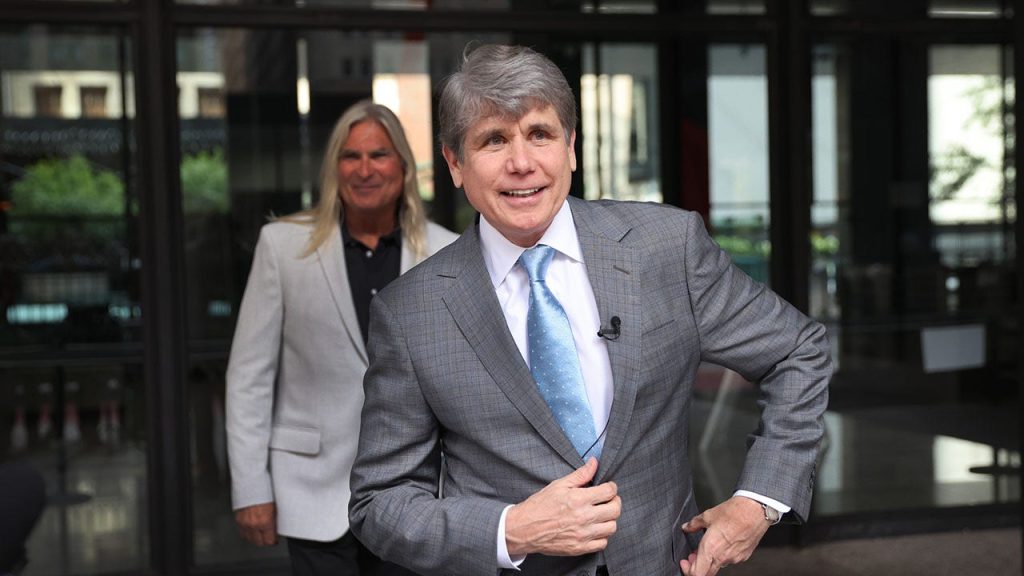Former Illinois Governor Rod Blagojevich, who was pardoned by President Donald Trump earlier this year, has recently taken on a controversial lobbying role representing the interests of the Republic of Srpska, a region in Bosnia and Herzegovina that has been embroiled in ethnic tensions. This territory is led by Milorad Dodik, a figure known as the “Bosnian Bear” due to his robust stature and staunch political stance, which some say aligns him closely with Russian President Vladimir Putin. While Blagojevich’s company aims to provide communications and public affairs support, this entanglement raises eyebrows and questions regarding international relations and regional stability.
| Article Subheadings |
|---|
| 1) Background on Rod Blagojevich and His Pardon |
| 2) The Role of Republic of Srpska in Bosnia |
| 3) Milorad Dodik and His Political Stance |
| 4) Implications of Blagojevich’s New Position |
| 5) International Reactions and Future Perspectives |
Background on Rod Blagojevich and His Pardon
Rod Blagojevich, the former Governor of Illinois, has become a polarizing figure within American politics following his 2011 conviction on federal corruption charges, where he was found guilty of attempting to sell the Senate seat vacated by Barack Obama. His political career effectively derailed, Blagojevich was sentenced to 14 years in prison. However, in February 2023, President Trump pardoned him, citing that he had been “set up by a lot of bad people.” This pardon came amidst a backdrop of political turbulence and set the stage for Blagojevich’s foray into lobbying, a move that many view with skepticism given his controversial past.
The Role of Republic of Srpska in Bosnia
The Republic of Srpska is a Bosnian Serb-led entity within Bosnia and Herzegovina, created by the Dayton Agreement in 1995 which ended a brutal war marked by ethnic cleansing and severe tensions. This region has a unique governance structure, allowing significant autonomy from the central government in Sarajevo. Over the years, it has been the epicenter of political conflict, especially with calls from leaders like Dodik for greater independence or integration with Serbia. The political landscape here can be described as complex, fraught with struggles between differing ethnic groups and competing national identities that often result in violent confrontations and diplomatic challenges.
Milorad Dodik and His Political Stance
Milorad Dodik, often referred to as the “Bosnian Bear” due to his imposing size and tenacity in politics, is a contentious figure in Bosnia and Herzegovina. As the President of the Republic of Srpska, his policies have attracted both loyal support and fierce opposition. He has long advocated for the separation of Srpska from Bosnia, positioning his region towards Serbia, a move that raises alarms among many in the international community. In February, Dodik was sentenced to a year in prison for defying the country’s Constitutional Court and fled to Moscow. Given his close ties with Putin, his actions are often perceived as a direct challenge to the stability of the Balkans.
Implications of Blagojevich’s New Position
Blagojevich’s decision to lobby for the Republic of Srpska through his firm, RRB Strategies LLC, presents significant implications for both U.S. foreign policy and the region’s stability. Reporting suggests that lobbyists under the Foreign Agents Registration Act need to openly disclose their activities, positioning Blagojevich at the forefront of promoting Srpska’s interests on an international scale. This resurgence in political activity may encourage similar lobbying efforts by other influential figures aiming to adopt Blagojevich’s playbook in representing contentious foreign interests in the U.S.
International Reactions and Future Perspectives
The international reaction to Blagojevich’s appointment has been a mix of skepticism and concern. U.S. Secretary of State Marco Rubio has criticized Dodik’s actions as undermining the country’s stability. Such reactions underscore the broader implications of Blagojevich’s involvement, particularly regarding U.S. foreign relations with Bosnia and Herzegovina and Serbia. Future discussions among political leaders are crucial. Countries in the region are urged to participate in constructive dialogues to ensure political stability and promote peace; thus far, tensions remain high, influenced by both local and international politics.
| No. | Key Points |
|---|---|
| 1 | Rod Blagojevich has taken on a lobbying role for the Republic of Srpska after being pardoned by Donald Trump. |
| 2 | The Republic of Srpska is a contentious entity within Bosnia with a history of ethnic tensions. |
| 3 | Milorad Dodik, the leader of Srpska, is seeking closer ties with Serbia and has faced legal challenges from the Bosnian government. |
| 4 | Blagojevich’s lobbying could lead to increased scrutiny of U.S. foreign policy towards the Balkans. |
| 5 | International concerns grow regarding the stability and security of Bosnia and Herzegovina amidst Dodik’s actions. |
Summary
Rod Blagojevich’s new lobbying role for the Republic of Srpska illustrates the intersections of local and international politics, particularly in regions marked by historical strife. Amidst Dodik’s provocative leadership and ongoing ethnic tensions, Blagojevich’s involvement complicates both domestic and international perceptions of stability in Bosnia and Herzegovina. As the political landscape evolves, the potential for further instability looms, necessitating careful navigation by policymakers in the U.S. and the Balkans alike.
Frequently Asked Questions
Question: Who is Rod Blagojevich?
Rod Blagojevich is a former Illinois governor who was convicted on corruption charges and later pardoned by President Donald Trump. He has recently begun lobbying for the Republic of Srpska.
Question: What is the Republic of Srpska?
The Republic of Srpska is one of two entities in Bosnia and Herzegovina, predominantly inhabited by Serbs, and operates with a high degree of autonomy. The region has been the center of ethnic and political tensions since the end of the Bosnian War.
Question: What challenges does Milorad Dodik face as a leader?
Milorad Dodik faces multiple challenges, including legal actions against him, tensions with the central Bosnian government, and ongoing international concerns regarding his calls for greater autonomy or integration with Serbia.


